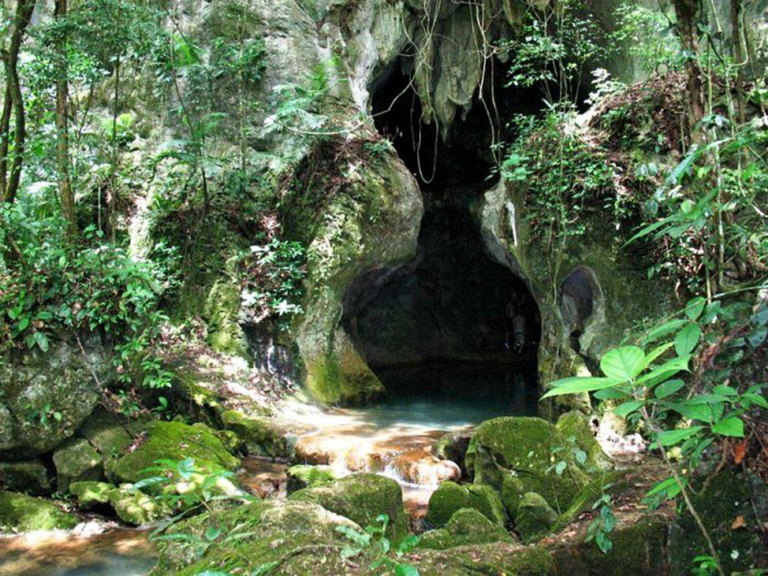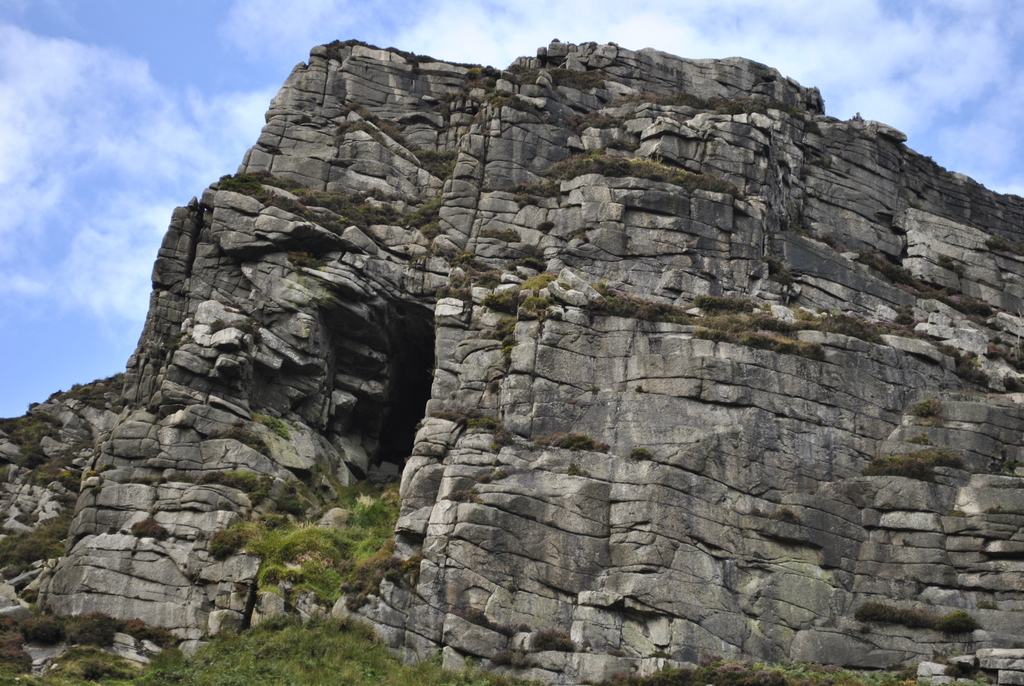Meaning and Characteristics
The name “Basajaun” is deeply rooted in Basque culture and carries a rich meaning tied to its linguistic origins.
In the Basque language, “basajaun” translates directly to “lord of the forest.”
This evokes a strong connection to nature, specifically to the powerful and mysterious realm of the woodland.
The word “baso” refers to “forest,” while “jaun” signifies “lord” or “master.”
Thus, “Basajaun” portrays a figure who holds dominion over the forest and its inhabitants.
This mythological entity is often depicted as a protector of the forest and its creatures.
In Basque folklore, Basajaun is associated with both benevolent and malevolent attributes.
He can be seen as a guardian spirit, ensuring the health and balance of the natural world.
However, he can also be portrayed as a mischievous or even dangerous figure, capable of causing harm to those who trespass or disrespect the forest.
The name “Basajaun” reflects a profound understanding of the interconnectedness between humans and nature, acknowledging the power and mystery inherent in the natural world.
Basajaun is a Basque word with deep roots in folklore and mythology. Its meaning is multifaceted, encompassing both literal and symbolic interpretations.
Literally, “basajaun” translates to “forest lord” or “lord of the woods.” This straightforward definition points to a figure who holds dominion over the natural world, particularly the forested regions of the Basque Country.
However, the name carries a wealth of symbolic weight beyond its literal translation. Basajaun is often depicted as a powerful protector and guardian of nature. He embodies the primal forces of the forest, its wildness, and its interconnectedness with human life.
In Basque folklore, Basajaun is often portrayed as a fearsome figure with long hair, beard, and horns. His presence is associated with both awe and apprehension. He may appear as a benevolent protector of animals and plants, or he can be seen as a wrathful force unleashed against those who disrespect the natural world.
The symbolic interpretations of Basajaun reflect the profound relationship between the Basque people and their environment. The forest has always been a central part of Basque culture, providing sustenance, shelter, and spiritual inspiration. Basajaun serves as a reminder of the importance of respecting and honoring this vital ecosystem.
Furthermore, Basajaun can be understood as a symbol of the wild spirit that resides within humanity. He represents the untamed aspects of our nature, our connection to the earth, and our capacity for both creativity and destruction.
Origin and Mythology
Basajaun, a prominent figure in Basque folklore, is a mythical creature deeply embedded in the cultural fabric of the Basque people. The name itself is believed to be derived from the Basque words “baso” (forest) and “jaun” (lord or master), literally translating to “Lord of the Forest.”
Origin and Mythology
The Basajaun’s origins are shrouded in the mists of time, predating written history. He likely evolved from ancient animistic beliefs that revered nature spirits and powerful forces residing within forests.
As a forest protector, the Basajaun was seen as a benevolent entity who guarded the woodlands, animals, and plants. However, his character could be complex and multifaceted, sometimes exhibiting mischievous or even menacing tendencies if humans trespassed upon his domain.
Appearance
Descriptions of the Basajaun vary depending on the region and tale. He is often depicted as a large, hairy humanoid figure, standing tall with immense strength. Some accounts describe him as resembling an old man with a long beard, while others portray him as more bestial.
He is commonly associated with animals, particularly bears or wolves, sometimes even possessing their features.
Common Characteristics and Attributes
- Protector of the Forest: The Basajaun was fiercely protective of the forest’s sanctity, ensuring its balance and well-being.
- Master Animal Handler: He possessed a deep connection with animals and could communicate with them or even control their behavior.
- Guardian of Secrets: The Basajaun was often associated with hidden knowledge and ancient wisdom, guarding the forest’s mysteries.
- Shape-Shifter: Some accounts suggest he could shapeshift into various animals, blending seamlessly into the woodland environment.
Tales and Legends
Numerous legends and stories surround the Basajaun, passed down through generations of Basque oral tradition. These tales often illustrate his protective nature, his ability to communicate with animals, and his occasional interactions with humans.
Some legends portray him as a helpful guide for lost travelers or a bringer of good fortune, while others warn against provoking his anger or entering his domain without respect.
Symbolism and Cultural Significance
The Basajaun embodies the deep reverence that Basque culture has for nature. He serves as a reminder of the interconnectedness of all living things and the importance of respecting the natural world.
His stories continue to resonate with Basque people, preserving their cultural heritage and reminding them of their connection to the land.
The name “Basajaun” has deep roots in Basque mythology and folklore.
“Basajaun” translates roughly to “Lord of the Forest” or “Master of the Woods.”
Originating from the Basque language, the name encapsulates the spirit and power associated with this enigmatic creature.
Within Basque culture, Basajaun is a powerful nature spirit often depicted as a tall, hairy humanoid.
His presence is deeply connected to the forests, mountains, and natural wilderness of the Basque Country.
Stories about him vary across regions, but he’s generally portrayed as a protector of the woods, fiercely defending them against harm.
There are numerous regional variations and adaptations of the Basajaun myth.
-
- Navarra: In Navarre, Basajaun is often depicted with horns and hooves, resembling a goat-like creature.
-
- Cantabria: In Cantabria, tales describe him as a fearsome giant who dwells deep within caves.
-
- Gipuzkoa: In Gipuzkoa, the Basajaun is believed to be a guardian of animals and herds, protecting them from predators.
Despite these variations, certain core elements remain consistent.
Basajaun is universally revered as a powerful entity connected to the natural world.
He embodies the spirit of wilderness and serves as a reminder of humanity’s dependence on nature’s protection.
Historical Presence and Contemporary Relevance
Historical Presence and Contemporary Relevance:
The Basajaun, a legendary creature in Basque folklore, has maintained a fascinating presence throughout history, weaving its way through oral traditions and artistic expressions within Basque culture.
Historically, the Basajaun was deeply ingrained in the lives of Basque communities, serving as both a protector and a cautionary figure. Tales recounted his ability to aid humans in times of need, but also warned of his potential for mischief or even danger if provoked.
His association with forests and animals underscored his role as a guardian spirit of the natural world, reflecting the profound connection Basques have with their mountainous and forested landscapes.
While not as prevalent in modern times, the Basajaun continues to hold a certain mystique and cultural significance. In recent years, there has been a resurgence of interest in Basque folklore and mythology, leading to renewed attention on figures like the Basajaun.
Contemporary artists and writers have drawn inspiration from this mythical being, incorporating him into their works to explore themes of nature, identity, and the enduring power of storytelling.
Literary and Artistic Depictions:
The Basajaun has been immortalized in various forms of Basque literature and art, ranging from traditional ballads and epics to contemporary novels and visual arts.
- Traditional Narratives:
- Folklore tales passed down through generations often featured the Basajaun as a central character, depicting his interactions with humans, animals, and supernatural forces. These stories served to entertain, instruct, and preserve cultural values.
- Ballads and epics celebrating Basque heroes sometimes included encounters with the Basajaun, portraying him as a formidable protector or a cunning adversary.
- Modern Literature:
- Contemporary authors have revisited the legend of the Basajaun, reimagining his character and weaving him into narratives that explore themes of identity, belonging, and the clash between tradition and modernity.
- Visual Arts:
- Paintings, sculptures, and other visual art forms have captured the mythical essence of the Basajaun. Artists have often depicted him as a powerful and enigmatic figure, emphasizing his connection to nature and folklore.
The enduring presence of the Basajaun in Basque culture demonstrates the power of storytelling and mythology to shape our understanding of the world around us. His image continues to inspire artists, writers, and individuals seeking to connect with their cultural heritage.
The Basajaun, a prominent figure in Basque folklore, occupies a fascinating space between historical presence and contemporary relevance. Its roots are deeply embedded in the pre-Christian beliefs of the Basque people, whose ancient oral traditions have preserved tales of this enigmatic creature for centuries.
**Basque mythology** is rich with nature spirits, and the Basajaun, often depicted as a large, hairy humanoid dwelling in forests, embodies the reverence and fear surrounding the untamed wilderness. Descriptions vary across regions, but common traits include immense strength, animalistic features like horns or fangs, and the ability to speak both Basque and animal languages.
The Basajaun’s historical presence is evidenced by its persistent presence in Basque art and literature.
Cave paintings and petroglyphs hint at a long-standing connection with this figure, while medieval chronicles and ballads further solidify its place within Basque cultural consciousness. The creature has also been integrated into traditional music, dances, and rituals, reflecting its profound impact on the social fabric of Basque communities.
Contemporary perceptions of the Basajaun are evolving alongside changing societal values. While it was once viewed primarily as a fearsome protector of forests, modern interpretations often embrace its gentler aspects, highlighting its wisdom and connection to nature.
This shift reflects a growing appreciation for the ecological importance of wilderness and a desire to reconnect with ancient traditions.
In popular culture, the Basajaun has become a symbol of Basque identity, appearing in films, literature, and even tourism campaigns. Its image is used to promote local crafts, culinary specialties, and cultural heritage.
This contemporary relevance underscores its enduring power as a cultural icon that transcends time and continues to shape perceptions of Basque culture.
- Best LeadsGorilla Alternatives for 2025 - April 26, 2025
- Best Overloop Alternatives for 2025 - April 25, 2025
- Best Lead411 Alternatives for 2025 - April 25, 2025


